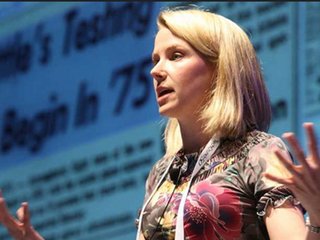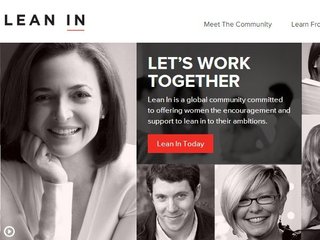What women want: Telling your family story through food
Cookbook Create lets users save memories in their own customized cookbook
Read more...
Back in 2011, BetterWorks CEO and co-founder Paige Craig wrote a fairly controversial post in which he unpacked—with surprising tact and honesty—his own fears about investing in a company with a pregnant founder or CEO. Specifically, he was referring to an incident in which he had committed to invest in ProFounder and found out shortly thereafter that its co-founder, Jessica Jackley, was pregnant with twins.
Craig ended up following through on his promise to invest, but he had reservations—which he admits were disturbing even to him, since he considers himself an “equal-opportunity” investor.
Craig certainly isn’t alone in his reservations. While women are starting businesses at 1.5 times the national average, less than 10% of VC funds go to women-led businesses. Among female founders, there is an unspoken understanding that if you’re going to raise funds for your company, you need to do it before you get pregnant—or at least before you start showing.
But what is the cost of keeping pregnancy and childrearing in the shadows? One of the major disadvantages to this is the fact that it leaves so few female role models for other female founders. Yahoo made waves last year when it installed the very pregnant Marissa Mayer as its CEO, making her the first pregnant CEO of a Fortune 500 company in history. But she learned her lesson fast and no longer divulges on her personal life.
Why are investors reluctant to invest in moms?
But female founders and CEOs are still starting families while growing their businesses. Why would investors hesitate to put money into a startup led by a pregnant woman? Because of the desire for fast and high growth. As LivingSocial co-founder Anthony Batallion highlighted at Startup Sessions last year, the hectic, fast-paced early days of startup growth is like “founder’s crack.” You are devoting every waking moment of your attention to your business, working late nights and weekends, with next to no sleep. The assumption is that you, as a founder, will eschew any and all personal obligations outside of your business, which, for a new parent, is hard to do.
“I never did, and never would, promise [my investors] that I wouldn’t fall in love, get married, [and] have a family at some point. Why would I? Who in their right mind would actually ask this of a person?” said Jessica Jackley in response to Craig’s post.
When it comes to entrepreneurs in the tech community, younger is better. Currently, the average age of entrepreneurs coming out of Y Combinator is 26. Peter Thiel’s 20 Under 20 program is specifically designed to uncover new talent before they’ve even graduated from high school.
For female founders, that’s a tough road to navigate since fertility drops off steeply after the age of 35. Many have found that the answer isn’t to time children around your startup, but to plow forward headfirst and make it work.
Jessica Kim and Babbaco
Jessica Kim got the idea for subscription commerce company Babbaco when she was pregnant with her first child. Babbaco sends you a monthly box of interactive activities, books, and toys geared toward children between the ages of three and seven.
“When you become a parent, 85% of your brand loyalties change,” said Kim, in an interview. “Everything from types of food, clothes, entertainment, the websites you read—they all change because your lifestyle has changed. I created Babbaco to make parenting more purposeful and enjoyable.”
Babbaco raised $350,000 in angel funding and then raised a $1.2 million Series A round in 2011, when Kim was pregnant with her third child. The round was closed from her hospital bed.
So what does a day in the life of a founder with young children look like?
“It’s literally day by day,” said Kim. “It’s not nine-to-five kind of work. I look at every day and try to see if there’s a good balance in three to four-day chunks. Some days, like when I was fundraising and traveling, it was all in and if I was traveling overnight, I wasn’t home. I made sure that in a chunk of three to four days, I did have that balance and was spending time with my kids.”
Kim added that she doesn’t need much sleep, so she frequently gets back on her computer after her kids go to bed and works until 2 am.
Vator CEO Bambi Francisco gave birth to her fourth son in April 2011 (pictured below), and—like Kim—was also finalizing deals from her phone from her hospital bed while she labored for two days. She was back to work after two weeks, and started taking her newborn to meetings.
deals from her phone from her hospital bed while she labored for two days. She was back to work after two weeks, and started taking her newborn to meetings.
“Finding the time to do everything is hard, but it can be done, especially if you have the means to get help,” said Francisco.
The challenges
There are several reasons why investors might shy away from mom-founders. Along with the assumption that the mother will be the primary caregiver, there’s the reality that 74% of senior female executives in the U.S. have partners who work full-time, whereas 75% of senior male executives have partners who don’t work at all. Many mom-founders have partners that work full-time and don’t plan to be stay-at-home parents, while the reverse isn’t true for dad-founders. Indeed, Warby Parker co-founder Neil Blumenthal told the New York Times that even though he and his wife were expecting a child while he was raising funds, the question of how he was going to balance his startup with his family responsibilities never came up.
“I understood. Their job is to figure out how much risk is involved,” said Jessica Kim. “They would be like, ‘I don’t know if this is legal, but how are you going to handle this?’ The investors who actually addressed it were the ones who became our investors.”
Heidi Roizen (of the infamous Heidi/Howard Roizen case) dealt with more bluntness. Visibly pregnant while raising her second round back in the mid-90s, Roizen ran into a couple of particularly rude VCs. “They’d ask me, ‘well aren’t you going to stay home and raise your baby?’ I’d tell them, ‘I’m going to have this baby and still be a bigger shareholder than you.’”
Coming up with new solutions
There is some merit to the concerns. Pregnancy and childbirth is no picnic. It’s a physically and emotionally transformative event, and it’s unrealistic to expect any woman to give birth and then make an appearance in the office the next day. And then there’s maternity leave. Can a company survive 12 weeks without its founder or CEO?
Jessica Kim solved that problem by simply taking her baby to work with her, nursing him under her nursing apron during meetings and even while recruiting new team members. Marissa Mayer returned to Yahoo less than two weeks after giving birth, but she is reportedly building a private nursery next to her office.
The challenges are real, but female founders are showing that mixing startups with babies is not impossible.
Image source: forbesindia.com
Cookbook Create lets users save memories in their own customized cookbook
Read more...Alt12's apps have seen 9M downloads as women flock to communities for women's health topics
Read more...Juniper and other companies are launching services to deliver tampons and treats to your doorstep
Read more...
Joined Vator on

Joined Vator on

Joined Vator on
Founder and CEO of Vator, a media and research firm for entrepreneurs and investors; Managing Director of Vator Health Fund; Co-Founder of Invent Health; Author and award-winning journalist.
Joined Vator on
Operating Partner at DFJ, board member TiVo and DMGT, teach entrepreneurship at Stanford. Co-founder/CEO T/Maker Company. Former VP WW Developer Relations at Apple. Stanford undergrad and MBA.



